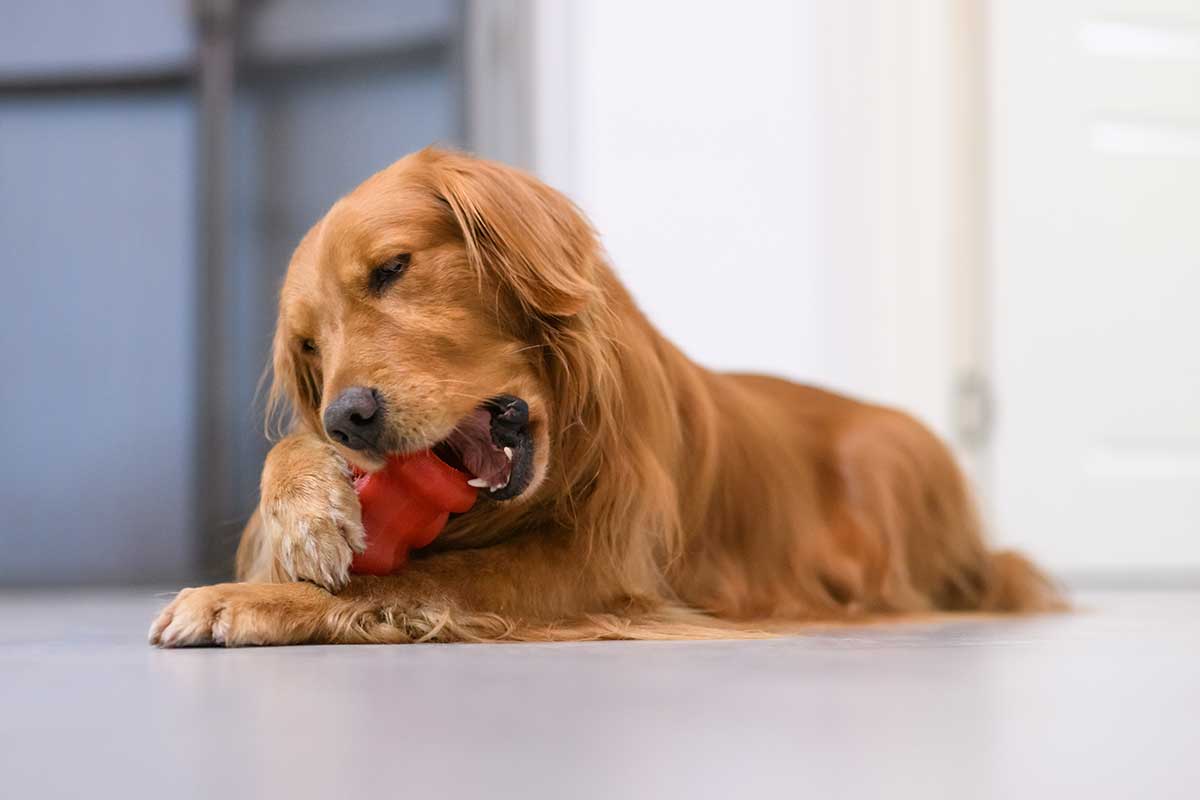If you have a puppy or adult dog with lots of energy, you know how much work it is to keep your pet entertained. And you’ve probably noticed how your dog’s stress level—and yours—goes up when he’s not getting enough exercise. High-energy dogs can develop behavior problems if they don’t get enough exercise and stimulation.
Bad winter weather can make it particularly hard to provide your dog with a way to burn off excess energy. Cold, snow, and ice can make it difficult for your dog to run and play outdoors.
Being stuck indoors doesn’t mean your dog can’t receive the exercise and attention he needs. Here are 10 ways to keep your dog’s mind and body occupied this winter and reduce his stress levels.
- Play dates. If your dog likes to play with other dogs, invite one or more of his friends over for some indoor fun. Just make sure all the dogs you invite know each other and have a proven record of getting along. Being indoors in close quarters means the dogs have to be good friends.
- Hidden treats.Gather a handful of treats and show them to your dog. Have someone hold him on a leash and let him watch you hide the treats in front of him (under a pillow, behind a door). Let him go, and encourage him to search. When he discovers a treat, praise him. After a few of these sessions, he will get the idea. You can then start hiding treats in other rooms, and he will stay busy hunting them down.
- Winter walks. Even the worst winters have an occasional day that’s not so bad. Be prepared to seize the moment if you get a break in the weather, and take your dog for a walk. Even a short one will do wonders to help his state of mind. Or add some novelty to your dog’s walks by discovering a new place to play via www.sniffspot.com, an app that allows you to find private spaces for hourly rental, ranging from basic backyards to large acreages with hiking trails for off-leash play.
- Puzzle toys. Invest in a puzzle toy or two to keep your dog’s mind occupied. Puzzle toys work by challenging the dog’s problem-solving skills. The toy rewards the dog with a treat when he figures out the puzzle. Some good puzzle toys are the Hide-and-Slide Puzzle by Outward Hound and the Dog Activity Flip Board by Trixie Pet Products.
- Kong toy. One of the best inventions for bored dogs is the Kong toy. This tough rubber concoction can be filled with peanut butter, soft cheese or Kong Stuff’N, and keeps dogs busy as they work on removing the food with their tongue. Dogs can spend an hour working on a Kong as they try to capture every morsel of food.
- Tug and ball. Just because it’s cold out doesn’t mean you can’t play with your dog. If you have a long hallway or a staircase, throw a tennis ball to him and let him chase it. If he likes to tug, get him a new tug toy and pull with him until he gets tired.
- If you have money to spend and are serious about exercising your dog when the weather is bad, consider investing in a canine treadmill. With just a little bit of training, your dog can learn to walk and run on the treadmill, with your supervision. The Dog Pacer Treadmill by dogPACER is made especially for dogs.
- Trick training. Mental stimulation can be just as tiring to a dog as physical activity. Teach your dog some tricks this winter to help exercise his mind. You’ll both have fun at the same time. Some popular and easy-to-learn tricks are shake, roll over, play dead, and dance. A quick internet search provides the titles of books about trick training, and links to websites with advice on how to teach these tricks.
- Videos. If you have a dog who likes to watch TV, get him a DVD that suits his interests, such as DVD for Dogs: While You are Gone, available on Amazon. Or go to YouTube and stream a dog video on your computer screen. Try the Videos for Dogs Extravaganza (https://www.youtube.com/watch?v=6D1K_bguPrc&t=170s).
- Natural remedies. If your cooped-up dog is going stir crazy, consider giving him a natural calming supplement to help him relax. Talk to your veterinarian about safe options for your dog.
This article was reviewed/edited by board-certified veterinary behaviorist Dr. Kenneth Martin and/or veterinary technician specialist in behavior Debbie Martin, LVT.








